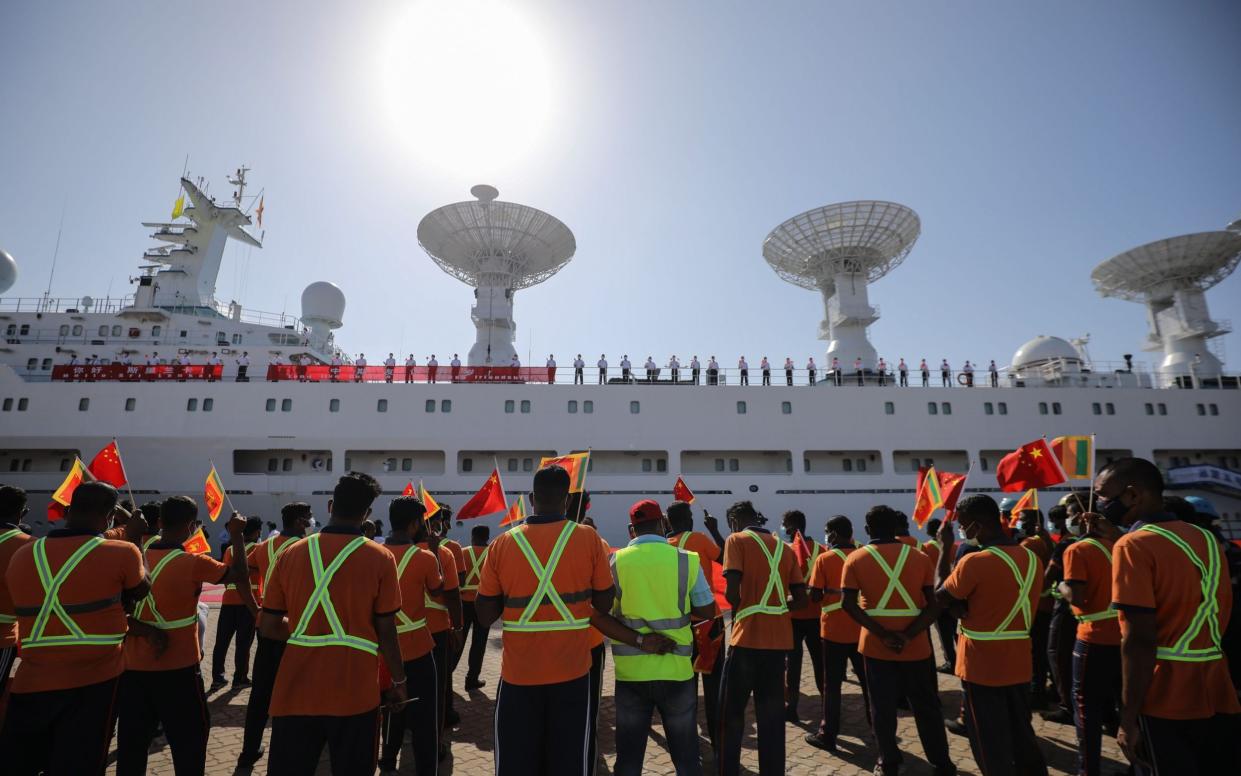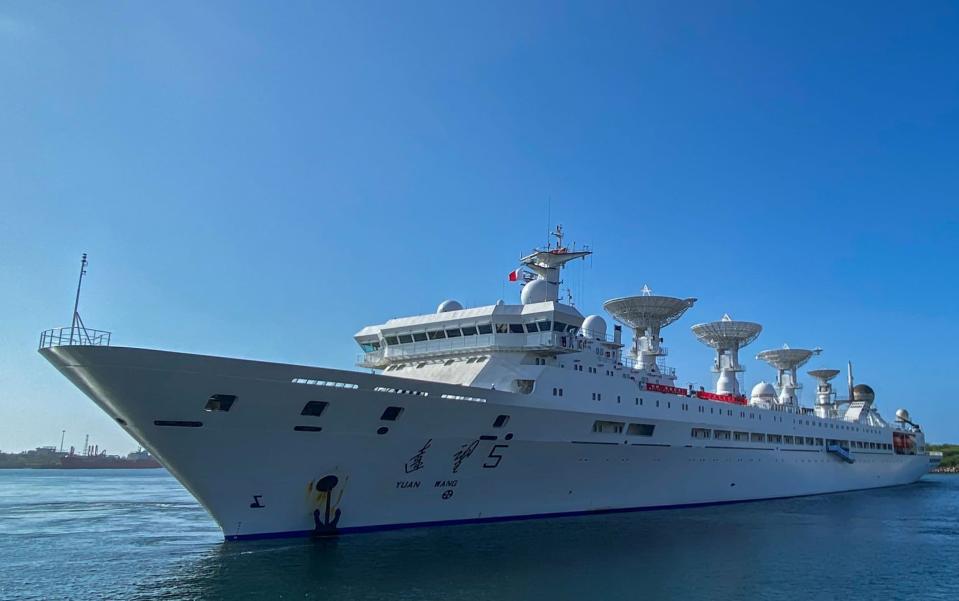China 'spy ship' docks in Sri Lanka despite India and US concerns

A high-tech Chinese survey vessel bristling with surveillance equipment docked on Tuesday in Sri Lanka, despite concerns from neighbouring India that the ship could be used to spy on its ports and military installations.
The arrival of the Yuan Wang 5, an advanced satellite-tracking vessel, for an expected week-long stay in the Chinese-built port of Hambantot,a has highlighted the precarious diplomatic position of the bankrupt South Asia nation at the centre of a geopolitical tussle between China and India.
India and China are sparring for influence in the Indian Ocean region, in parallel with a growing rivalry between Washington and Beijing in the Indo-Pacific and specifically over Chinese claims to democratically-ruled Taiwan.
Foreign security analysts have described the Yuan Wang 5 as one of China's latest generation space-tracking ships, used to monitor satellite, rocket and intercontinental ballistic missile launches.
The Pentagon says the Yuan Wang-class ships are operated by the Strategic Support Force of the People's Liberation Army. In recent weeks, the Indian media has referred to the vessel in question as a “dual-use spy ship”.
Beijing reportedly reacted angrily after the Sri Lankan foreign ministry initially granted permission for the ship to dock but then asked China to “defer” the visit in response to Indian and US objections.
Wang Wenbin, a Chinese foreign ministry spokesman, said it was “completely unjustified for certain countries to cite the so-called ‘security concerns’ to pressure Sri Lanka”.
According to Nikkei Asia, citing a Sri Lankan official, Beijing allegedly warned behind closed doors of possible economic ramifications linked to the restructuring of Sri Lanka’s debt, as well as ongoing talks for a $4 billion aid package.

The country has faced economic and political collapse in recent months and is heavily dependent on both China and India for financial aid. It finally gave the green light to the survey vessel on Saturday, reportedly on condition that it would not carry out research in Sri Lankan waters.
India has rejected claims it pressured Sri Lanka to deny the vessel permission to dock but New Delhi is concerned about China’s growing footprint on the island, which is heavily indebted to Beijing’s Belt and Road Initiative, in particular over loans it incurred building the Hambantota port.
Concerns over China's advance across Indo-Pacific
India’s fears that China could use the port, near the main Asia-Europe shipping route, as a military base, echo similar unease among the US and its allies about Beijing’s economic and military advance across the strategic Indo-Pacific region.
Tensions between Washington and Beijing hit new heights earlier this month after Beijing carried out huge air and sea drills around Taiwan in a furious response to a visit by Nancy Pelosi, the speaker of the US House of Representatives, to Taipei.
The Chinese Communist Party claims Taiwan as its own territory even though it has never ruled there and its military fired multiple ballistic missiles into the waters around the island after Ms Pelosi left – the first time it has done so since the mid-1990s.
"It's very important that we contest this type of thing. I know that the gorilla in the room is launching missiles over Taiwan," Seventh Fleet Commander Vice Admiral Karl Thomas told reporters in Singapore on Tuesday.
"If we just allow that to happen, and we don't contest that, that'll be the next norm," he added.
"It's irresponsible to launch missiles over Taiwan into international waters, where the shipping lanes, where free shipping operates."
His comments came after China conducted new military drills on Monday as another congressional delegation visited the island, and state media ran footage and pictures of Taiwan's Penghu islands purportedly taken from Chinese jets flying a short distance from the archipelago.
The islands are a popular holiday destination, as well as hosting a major Taiwanese airbase.
But Taiwan denied the reports as “cognitive warfare”. In 2016, similar Chinese reports claiming to show a long-range strategic bomber flying within visible range of Taiwan’s highest mountain were denounced by the Taiwanese defence ministry as fake news intended to spread fear.
In a sign of increasing tensions across the Indo-Pacific over Chinese ambitions and North Korea’s continued nuclear arms build-up, the US and its allies have been ramping up their own joint military drills.
On Monday, the US department of defence said it had conducted a missile warning and ballistic missile search and tracking drill with Japan and South Korea off the coast of Hawaii.
The US has also backed a new pledge by Yoon Suk-yeol, the South Korean president, to significantly rebuild North Korea’s economy if it takes steps towards denuclearisation.

 Yahoo Movies
Yahoo Movies 
